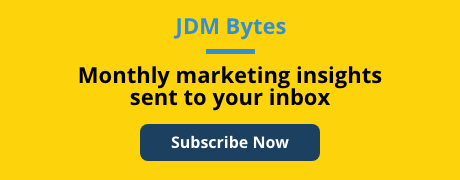Google occasionally goes a little heavy-handed in forcing marketers to adopt their features, but they can also prove responsive to pushback from advertisers who want more control. Earlier this month, Google took a step in the direction of flexibility by announcing some updates to its automatically applied recommendations in AdWords.
That said, Google being Google, advertisers do have to apply a bit of a critical reasoning to take full advantage of the flexibility. In this post, we’ll look at what’s changed and how we recommend advertisers approach the feature going forward.

Details of the Auto-Apply Update
Automatic updates are now packaged into two bundles: Maintain your ads and Grow your business.

The “Maintain” bundle’s 10 recommendations include, according to Google, “foundational recommendations to improve your responsive search ads, remove redundant keywords, and upgrade your conversion tracking.”
The “Grow” bundle’s 16 recommendations include, according to Google, “advanced optimizations like upgrading your keywords to broad match, maximizing your conversions with automated bidding, and adding store visits as a conversion.”
Perhaps the most important notes: advertisers can choose which recommendations to apply, one by one. Despite Google’s wording, nothing is “automatically” applied unless an advertiser selects the option, and bundles do not need to be applied as a group. Google has provided information for each option; you can now click into each individual suggestion from the “Manage” tab to get more details.
Recommendations for Using the Auto-Apply Features
Each advertiser has individual priorities, time, and resources, but I always prefer to take control where Google gives us the option. Google recommendations can be great for directional understanding of where a marketer’s focus should be, but they are not always perfectly aligned with marketing goals.
Because of this, I have yet to automate an entire bundle at one time; I prefer focusing on automating singular recommendations that I trust won’t make too many sweeping changes with an account. Individual changes can keep learning cycles nice and tight and can help pinpoint the changes that actually drive success (or poor results).
As far as bundle comparisons go, I prefer the Grow Your Business bundle less than the Maintain Your Ads bundle because the former offers bid-related optimizations. The only bid-related automation I would consider activating would be for goals around awareness or consideration (e.g. max clicks or target impression share). When it comes to down-funnel bid strategies, I prefer precise and manual optimizations to maintain control over high-value conversion types, but auto-applied top-of-funnel optimizations can work well.
Specific Auto-Apply Recommendations: Best to Worst
In my experience, the two most effective recommendations to apply are Optimized Ad Rotation (which shows the auction’s best-performing ads) and Remove Non-Serving Keywords (which helps you manage keywords more easily by automatically removing what does not resonate with your target audience).
The least effective, on the other hand, are recommendations around bidding and audience targeting. These can be sensitive optimizations that I, as a marketer, would prefer to maintain more control over.
In short, read the fine print of these “automatic” applications, and make sure you’re setting yourself up to understand which are working (or not) as you apply them. If you have limited time for manual optimizations, my best practice is to apply your time toward controlling the levers of your most valuable KPIs and letting Google’s machine learning help elsewhere in your account.
Looking for a team of experts to handle your Google Ads? Request an audit from Jordan Digital Marketing to learn more!
